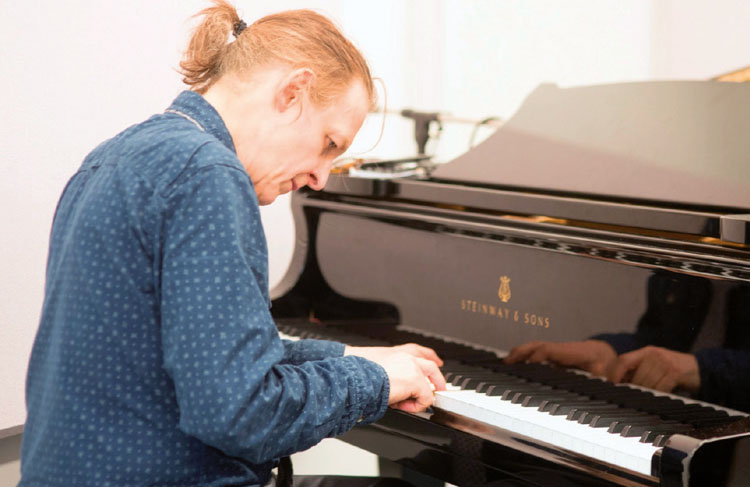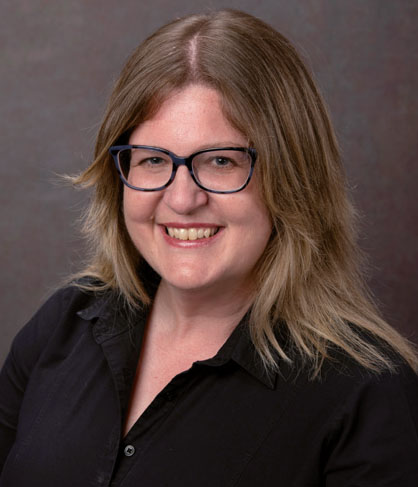
When we talk about jazz in the context of music education, we are often referring to a GCSE set work by Ella Fitzgerald, or a lesson plan based around teaching swing rhythms; but one group of eminent figures in music education is seeking to contribute to policy through advocacy for jazz in education. Now referring to themselves as Jazz in Education UK (as opposed to the slightly more cumbersome The Jazz in Education Initiative), the group plans to host its first major conference in Birmingham in 2023 – kicking off the campaign in earnest following a pandemic-related lull.
In October 2021, the group sent a document to MPs in response to the All Party Parliamentary Jazz Appreciation Group's (APPJAG) Review of Jazz in England 2021. On behalf of 19 signatories, the paper was written by the head of music and BMus (Education) programme director at the University of Aberdeen and co-chair, Pauline Black, honorary senior lecturer in education at the University of Sussex, Duncan Mackrill, and the current international chair in improvisation at Guildhall, Simon Purcell. Serving as a ‘summary statement of purpose’, the compact document argues that the teaching and learning practices of jazz model ‘highly effective’ classroom and instrumental pedagogy but are currently ‘largely underused’.
‘The group is a long overdue initiative to raise awareness in the education world about the pedagogical and curriculum value of jazz’, says Purcell. ‘It's not about converting half a million children into jazz musicians – it's about the value of the pedagogical practices of jazz,’ he clarifies, offering improvising and rhythmic and harmonic literacy as examples. The group argues that, currently, teacher education in music ‘generally privileges classical music skills’, which results in ‘pedagogies more suited to classical music, or reactive and partially informed solutions to non-classical music’.

Simon Purcell
Getting experienced improvisors into classrooms
Although classically trained, Purcell is now mainly known as a jazz musician, pianist, and educator. Graduating from Trinity College London in 1980, he went on to complete a PGCE at Goldsmiths, which led to teaching opportunities in London schools and on Guildhall's jazz course. ‘I did a mixture of peri brass teaching, but the thing I enjoyed most was being in the classroom,’ he says. ‘I was also head of the jazz course at Trinity Laban between 2005 and 2017, and then went back to Guildhall part-time to take on this position,’ he adds, referring to his role as international chair of improvisation, ‘because it gives me time to practise, play, and do advocacy work like this.’
Jazz in Education UK launched with a ‘small symposium’ at Guildhall in July 2019 – an information-gathering and roundtable discussion attended by roughly 30 people. Since then, and the advent of Covid, working groups have met online to establish an agenda on areas such as pedagogy, curriculum, and diversity. On the last point, Purcell adds, ‘We're very keen that we look at diversity not only in terms of race, gender, and inclusivity, but also in terms of curriculum diversity.’ The November conference – which they hope will be attended by some MPs – will be the group's first major opportunity to make their case, set their agenda, and open the discussion to the wider music education community.
In encouraging discussion, Jazz in Education UK hopes to facilitate four main changes, or ‘desired actions’. Each proposal stems from a key concern held by the group, a significant one of which is that less than 5 per cent of jazz graduates enter the classroom teaching profession. ‘Many become peripatetic teachers, but very few go into the classroom,’ says Purcell, ‘so curriculum music is rarely delivered by people from that particular musical background. This means that the vast majority of music teachers aren't necessarily highly experienced improvisors or rhythmic musicians, which will have an effect.’ He continues: ‘Unless you're teaching in a choir school, for example, then your skillset as a music teacher often doesn't necessarily meet the immediate needs of the children.’ This is an ‘emotive’ statement, Purcell acknowledges, adding that he's ‘massively pro teachers’ and respects them highly. ‘A paradox in this is that most jazz education isn't particularly informed by educational practice, and it's rarely informed by educational research. Jazz has a lot to learn from teacher training, teacher development, and curriculum design. There could be a massive opportunity for education to inform the jazz world and the jazz world to inform education – it could be a brilliant reciprocal partnership,’ says Purcell.

Co-chair Pauline Black
Strategic relationships
What this symbiotic relationship might look like, according to Jazz in Education UK, is proactive recruitment of jazz graduates into teacher education courses, and ‘stronger and more strategic’ relationships between music higher education institutions and teacher education institutions. They also hope that more CPD courses for current teachers can be made available, focusing on currently ‘underused’ teaching and learning strategies employed by jazz musicians. As part of her PhD in Music at the University of Edinburgh, co-chair of the group Pauline Black has set up a mentoring scheme for jazz musicians and teachers. She says, ‘The project ensures that people bring their own diverse skillsets to the process, allowing teachers, jazz musicians, and young people to work together to develop their ideas.’ ‘It's very much in its infancy and hasn't got the funding it deserves,’ adds Purcell. ‘It's almost a no-brainer – it could be such a low-cost and beneficial way of developing both sides of the equation.’
Purcell is also actively involved in the push to get more jazz graduates into the classroom. In London – at Guildhall and elsewhere – Purcell is speaking to fourth year and post-graduate students about doing a PGCE, and reports that Jeremy Price (head of jazz at Birmingham Conservatoire and a signatory of the paper) is doing the same with his leavers. ‘There's a lot of myth-busting to be done,’ says Purcell. ‘People think that you can't teach part-time and that your performing is going to have to stop. They don't realise that there are many ways into teacher training. We advocate for PGCE because we think it's the best training, but there are several other ways of getting into the classroom.’
Not canon based
Jazz in Education UK's ‘statement of purpose’ makes a clarification that is worth pointing out: ‘This group is not advocating jazz education or the study of jazz per se, but rather jazz in education.’ Purcell elaborates: ‘This is an important differentiation. It's not canon based – we're less preoccupied with a canon-based approach to jazz. It's not about educating people to play Duke Ellington or Charlie Parker, as brilliant as that is.’ He continues, ‘The pedagogical values that we espouse in jazz education are experiential learning; sound first, symbol second; embodiment. You learn rhythm through your bodies – it's the music of dance and song. Jazz is about experiential, physical learning, rhythmically evolved cultures, and people becoming melodically and harmonically literate, and developing their musical memory, through improvisation and lots of repetition.’ He describes this teaching method as a ‘no-brainer’ for most educators but adds that jazz has been doing this for over 100 years and has got ‘bucket loads of pedagogical and performance practice’.
He is also keen to dispel the ‘anxiety’ that a genre-based education ‘is going to exclude people’. ‘Once you apply improvisation, it personalises your relationship with the genre. If you're not comfortable with improvising, you can't fray the musical object around the edges.’ He continues: ‘Once you begin to fray them around the edges, you've still got that beautiful piece of culture, but that student in Coventry or Crewkerne or in Wapping can have their interaction with it.’
‘We're all on the same side’
The group's approach might, in some ways, come across as critical of the music teaching currently talking place in schools around the country. Recognising this in my questioning, Purcell says: ‘I want to emphasise that what we're doing is not anti-schoolteacher, because there's a lot of really great work going on that isn't jazz-based, and teachers are immensely resourceful. If there were phases, then the next phase is about getting co-mentoring circles and online buddying set up between experienced schoolteachers, who are used to managing a class of 35 children in curriculum music, and skilled rhythmic and improvising musicians.’
He adds: ‘The last thing I want to do is create any kind of dissent among music educators – we're all on the same side. It's just long overdue that the teaching and learning strategies that we use all the time, and that teacher educators know are good, are incorporated.’
With school budgets being squeezed beyond their limits, and music educators having to fight for their subject's place in the curriculum even more fervently than usual, unity is needed now more than ever. Getting more music graduates – jazz or otherwise – into classrooms and facilitating specialist skill-sharing via mentoring schemes should be high up on everyone's agenda.








